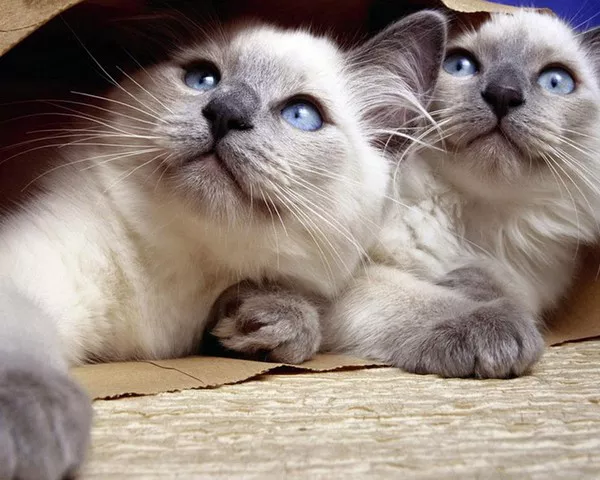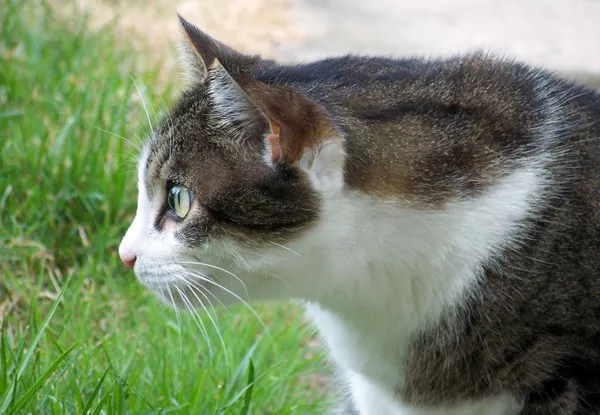Siamese cats, known for their striking blue eyes, sleek bodies, and vocal personalities, are among the most recognizable and beloved cat breeds. However, their distinct personality traits often lead to questions about their behavior, including whether they can feel emotions like jealousy. This article explores the nature of Siamese cats, examining whether they experience jealousy, the reasons behind such behavior, and how owners can manage it.
Understanding the Personality of Siamese Cats
Intelligent and Curious
Siamese cats are renowned for their intelligence and curiosity. They are quick learners and often enjoy interactive toys and puzzle feeders that challenge their minds. Their inquisitive nature means they are always exploring their environment and engaging with their surroundings.
Affectionate and Social
Unlike some cat breeds that are more independent, Siamese cats are extremely social and affectionate. They form strong bonds with their human companions and thrive on interaction. This need for companionship makes them more susceptible to feelings of jealousy when they perceive a threat to their bond with their owners.
Vocal and Expressive
Siamese cats are known for their vocal nature. They communicate through a wide range of sounds, from gentle purring to loud meowing. This expressiveness extends to their body language, making it easier for owners to understand their moods and emotions.
Do Siamese Cats Experience Jealousy?
Defining Jealousy in Cats
Jealousy, as understood in humans, involves a complex mix of emotions, including insecurity and fear of losing attention or affection. In cats, jealousy may manifest as behaviors driven by competition for resources or attention. While it is debated whether cats experience jealousy in the same way humans do, many pet owners report observing jealousy-like behaviors in their feline companions.
Signs of Jealousy in Siamese Cats
Owners of Siamese cats often report specific behaviors that suggest jealousy. These behaviors can include:
Attention-Seeking Behavior: A jealous Siamese cat may become more demanding of attention, often interrupting interactions between their owner and another person or pet.
Aggressive Behavior: In some cases, jealousy can lead to aggression towards the perceived rival, whether it’s another pet or even a human.
Destructive Behavior: Scratching furniture, knocking over objects, or other destructive actions may occur if the cat feels neglected.
Excessive Vocalization: Increased meowing or howling can be a sign that the cat is feeling insecure or left out.
Territorial Marking: Spraying or marking areas with their scent can be a way for a jealous cat to reassert their presence and claim territory.
Triggers for Jealousy in Siamese Cats
Several factors can trigger jealousy in Siamese cats. Understanding these triggers can help owners address the root cause of their cat’s behavior.
New Pets
Introducing a new pet into the household is a common trigger for jealousy in Siamese cats. The new pet is seen as a competitor for the owner’s attention and resources, leading to jealousy.
New Family Members
The arrival of a new baby or a new partner can also trigger jealousy. Siamese cats may feel their bond with their owner is threatened, leading to insecurity and jealousy-driven behaviors.
Changes in Routine
Cats are creatures of habit, and any significant change in their routine can cause stress. A new job that changes the owner’s schedule or a move to a new home can trigger feelings of insecurity and jealousy in Siamese cats.
Lack of Attention
Siamese cats crave interaction and affection. If they feel they are not receiving enough attention, they may exhibit jealous behaviors to regain their owner’s focus.
Managing Jealousy in Siamese Cats
Providing Adequate Attention
One of the most effective ways to prevent and manage jealousy in Siamese cats is to ensure they receive plenty of attention. This includes regular playtime, petting, and interactive activities that engage their minds and bodies.
Interactive Play
Engage your Siamese cat with interactive toys that stimulate their intelligence and curiosity. Laser pointers, feather wands, and puzzle toys are excellent choices.
Quality Time
Spend quality time with your cat each day. This can include cuddling, talking to them, and involving them in your daily activities.
Introducing New Pets and People Gradually
When introducing a new pet or family member, do so gradually to reduce stress and jealousy. Allow your Siamese cat to become familiar with the new addition at their own pace.
Separate Spaces
Initially, keep the new pet or person in a separate space to allow your Siamese cat to adjust to their presence without feeling threatened.
Positive Associations
Create positive associations with the new addition by offering treats and praise when your cat interacts calmly and positively with them.
Maintaining a Routine
Cats thrive on routine, and maintaining a consistent schedule can help reduce stress and prevent jealousy. Ensure feeding, playtime, and other activities occur at the same times each day.
Creating a Secure Environment
Provide a secure and enriched environment for your Siamese cat. This includes plenty of hiding spots, elevated areas like cat trees, and interactive toys to keep them engaged.
Addressing Behavioral Issues
If jealousy leads to aggressive or destructive behavior, it may be necessary to consult a veterinarian or a cat behaviorist. They can provide guidance and strategies to address these issues effectively.
Behavior Modification
Behavior modification techniques, such as positive reinforcement, can help redirect your cat’s behavior and reduce jealousy.
Medical Evaluation
In some cases, behavioral issues may be linked to medical conditions. A thorough veterinary evaluation can rule out any underlying health problems.
Conclusion
Siamese cats, with their social, affectionate, and intelligent nature, can indeed exhibit behaviors that suggest jealousy. Understanding the triggers and signs of jealousy in Siamese cats is crucial for their well-being and for maintaining a harmonious household. By providing adequate attention, introducing new pets and people gradually, maintaining a routine, and creating a secure environment, owners can manage and prevent jealousy in their Siamese cats. If behavioral issues persist, seeking professional advice from a veterinarian or a cat behaviorist can ensure your Siamese cat remains happy and well-adjusted.























